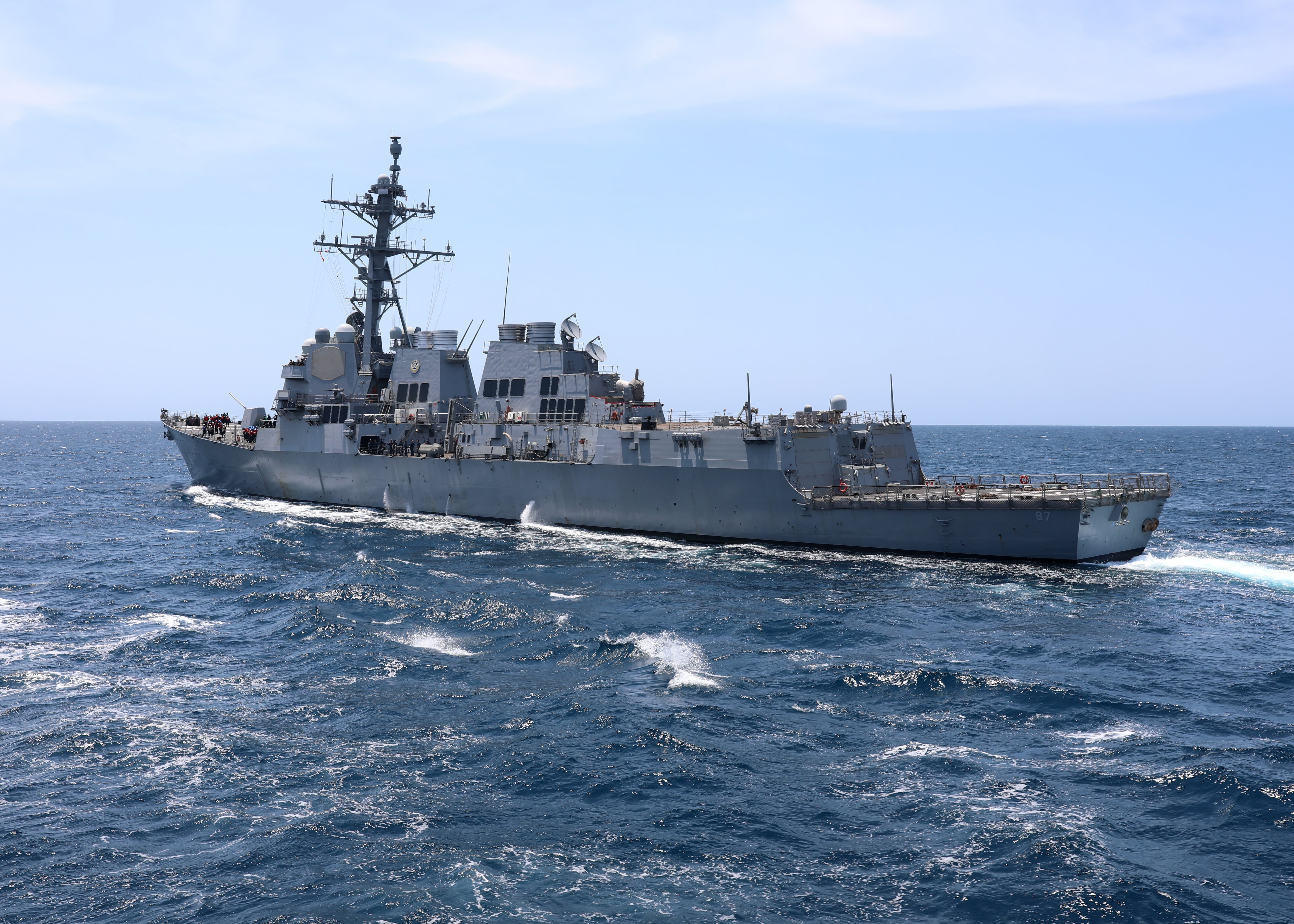The Navy warship Mason came to the aid of a commercial ship that was struck by a cruise missile in the Red Sea’s Bab-el-Mandeb strait Monday, according to U.S. Central Command.
“At around 4 p.m. EST on December 11, the Motor Tanker STRINDA was attacked by what is assessed to have been an Anti-Ship Cruise Missile (ASCM) launched from a Houthi controlled area of Yemen while passing through the Bab-el-Mandeb,” CENTCOM said in a brief statement. “The STRINDA reported damage causing a fire on-board, but no casualties at this time. There were no US ships in the vicinity at the time of the attack, but the USS MASON responded to the M/T STRINDA’s mayday call and is currently rendering assistance.”
It’s the latest attack on a private vessel transiting the vital economic sea lane, and another instance of Mason responding.
Mason and fellow destroyer Carney have also shot down attack drones and responded to attacks on other civilian ships in recent weeks.
In each of the drone intercepts, the Pentagon has said the aircraft were downed in self defense by the Navy ships but they could not ascertain whether the destroyers were the targets of the drones.
The assault on the Norwegian-flagged oil and chemical tanker Strinda Monday expands a campaign by the Iranian-backed rebels targeting ships close to the Bab el-Mandeb Strait into apparently now striking those that have no clear ties to Israel. That potentially imperils cargo and energy shipments coming through the Suez Canal and further widens the international impact of the Israel-Hamas war now raging in the Gaza Strip.
The Houthis did not immediately claim responsibility for the attack, though rebel military spokesperson Brig. Gen. Yahya Saree said an important announcement would be coming from them soon.
The Houthis have carried out a series of attacks on vessels in the Red Sea and also launched drones and missiles targeting Israel. In recent days, they have threatened to attack any vessel they believe is either going to or coming from Israel, though there was no immediate apparent link between the Strinda and Israel.
Analysts suggest the Houthis hope to shore up waning popular support after years of civil war in Yemen between it and Saudi-backed forces.
France and the U.S. have stopped short of saying their ships were targeted in rebel attacks, but have said Houthi drones have headed toward their ships and have been shot down in self-defense. Washington so far has declined to directly respond to the attacks, as has Israel, whose military continues to describe the ships as not having links to their country.
Global shipping has increasingly been targeted as the Israel-Hamas war threatens to become a wider regional conflict — even as a truce briefly halted fighting and Hamas exchanged hostages for Palestinian prisoners held by Israel. The collapse of the truce and the resumption of a punishing Israeli ground offensive and airstrikes on Gaza have raised the risk of more sea attacks.
In November, the Houthis seized a vehicle transport ship linked to Israel in the Red Sea off Yemen. The rebels still hold the vessel near the port city of Hodeida. Separately, a container ship owned by an Israeli billionaire came under attack by a suspected Iranian drone in the Indian Ocean.
A separate, tentative cease-fire between the Houthis and a Saudi-led coalition fighting on behalf of Yemen’s exiled government has held for months despite that country’s long war. That’s raised concerns that any wider conflict in the sea — or a potential reprisal strike from Western forces — could reignite those tensions in the Arab world’s poorest nation.
In 2016, the U.S. launched Tomahawk cruise missiles that destroyed three coastal radar sites in Houthi-controlled territory to retaliate for missiles being fired at U.S. Navy ships at the time.
Geoff is the managing editor of Military Times, but he still loves writing stories. He covered Iraq and Afghanistan extensively and was a reporter at the Chicago Tribune. He welcomes any and all kinds of tips at geoffz@militarytimes.com.





